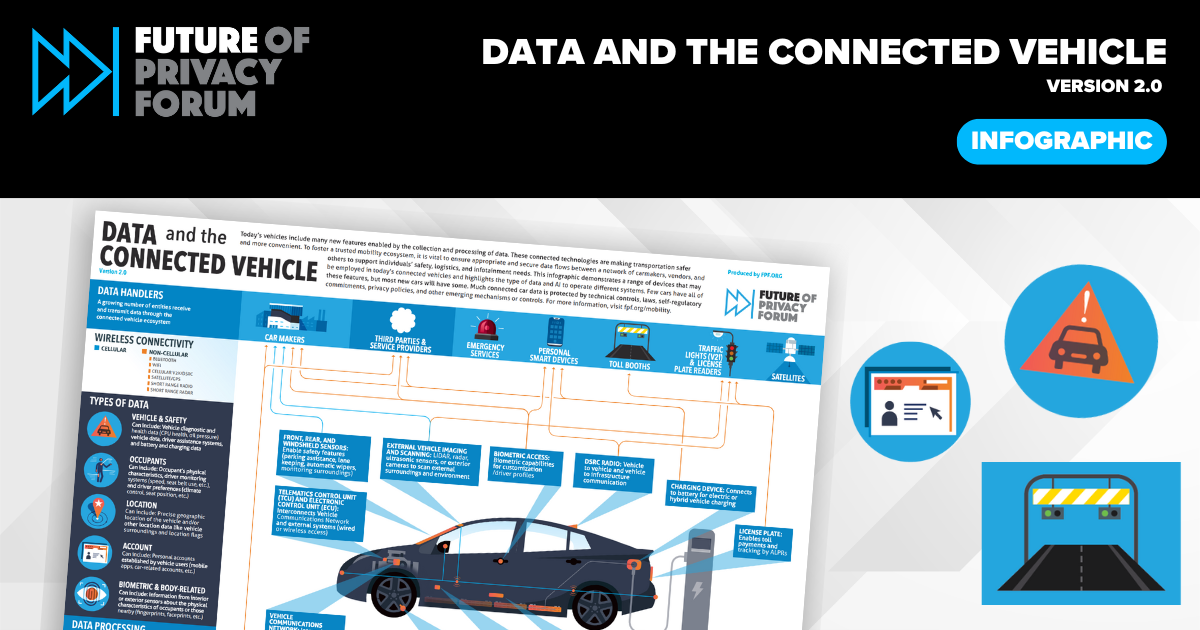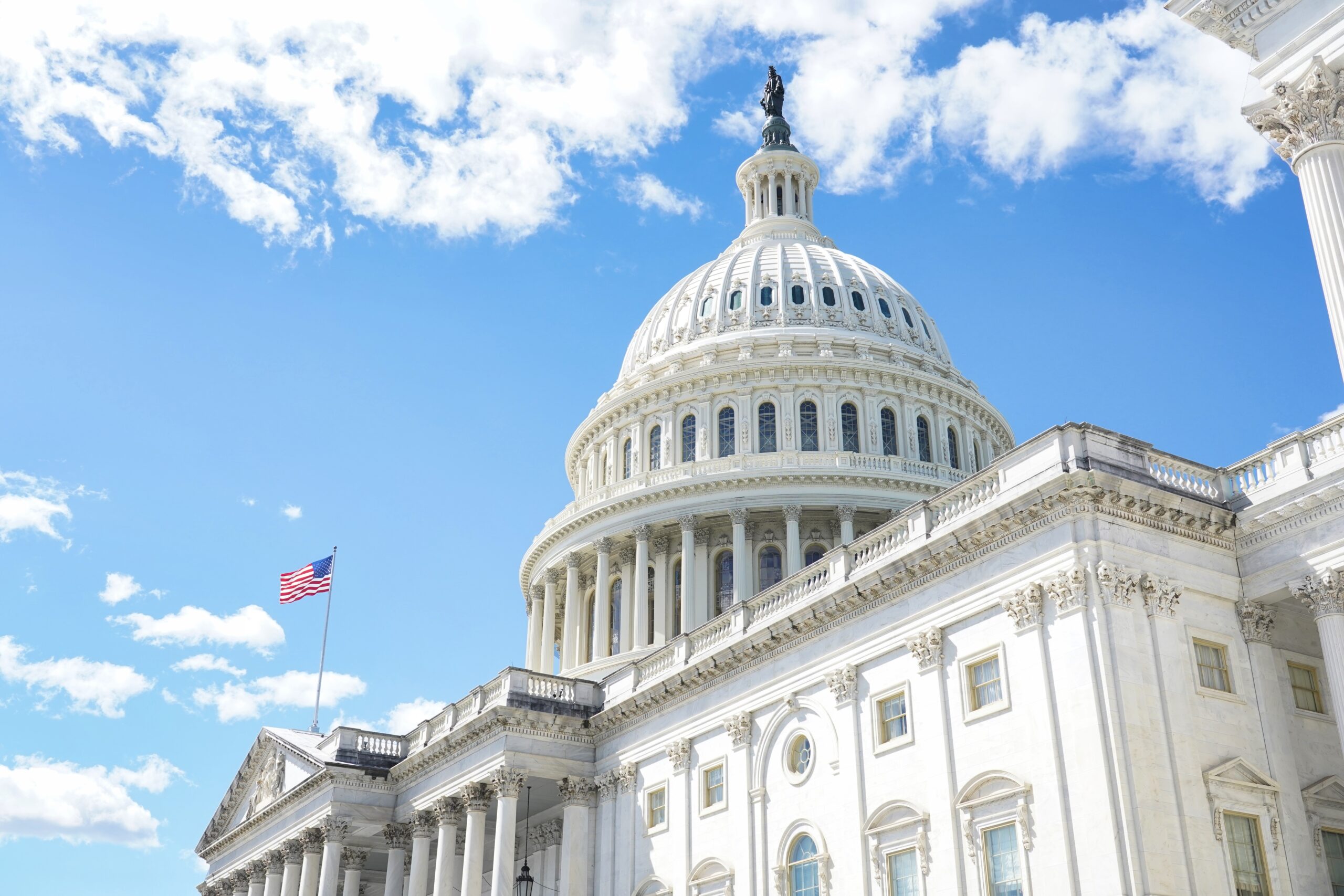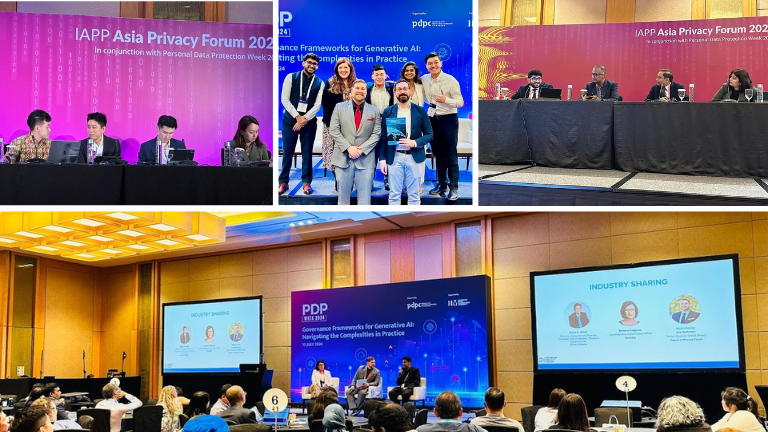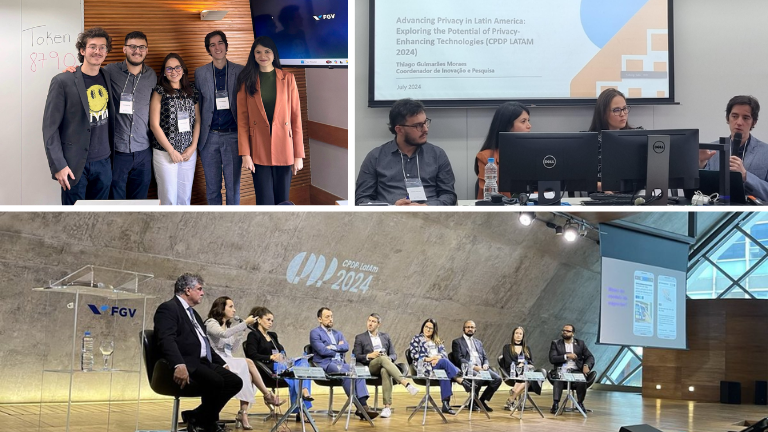
FPF Data Clean Rooms Discussion Sept 2024
Discussion Draft SEPTEMBER 2024 BY AARON MASSEY Technologist and Senior Policy Analyst for Advertising Technologies and Platforms, FPF Forward D ata clean rooms are an increasingly discussed tool in industry, utilized in advertising and marketing, health care, and academic research, as well as for regulatory compliance. Leading thinkers have already started to analyze the capabilities […]

Updated FPF Infographic Explores Data in Connected Vehicles
Today, The Future of Privacy Forum is launching the Data and the Connected Vehicle Infographic 2.0, including new updates to account for the types of data associated with connected vehicles, features in and outside of the vehicle, and data handlers who receive and process data. Lawmakers, manufacturers, privacy professionals, and consumers are actively engaged in […]

Infographic Explores Driver Data Collection and Use in Connected Cars
FPF’s “Data and the Connected Vehicle” Demystifies Connected Car Ecosystem as Policymakers Look to Regulate SEPT. 16, 2024 — Vehicle technologies are evolving rapidly, in every facet of the system, from safety features to entertainment, and occupant convenience. Many of these new features are enabled by the collection of driver and occupant data – and […]

FPF_connected_vehicl_v2_03_nosidebar (2)
CELLULARNON-CELLULAR WIRELESS CONNECTIVITY BLUETOOTH WIFI CELLULAR V2X/DSRC SATELLITE/GPS SHORT RANGE RADIO SHORT RANGE RADAR BIOMETRIC & BODY-RELATED Can include: Information from interior or exterior sensors about the physical characteristics of occupants or those nearby (fingerprints, faceprints, etc.) ARTIFICIAL INTELLIGENCE Can include: Algorithmic processing, decision making, and machine learning present throughout various vehicle systems and features […]

Call for Nominations: 15th Annual Privacy Papers for Policymakers Award
Future of Privacy Forum Award Elevates Privacy Research to Inform Policy Discussion September 9, 2024 —The Future of Privacy Forum (FPF) invites scholars and authors with an interest in privacy issues to submit finished papers to be considered for its 15th annual Privacy Papers for Policymakers (PPPM) Awards. The award provides privacy and data protection […]

Privacy Roundup from Summer Developer Conference Season 2024
Ahh, summer. A time for hot dogs, swimming pools, and software developer conferences. For third-party application developers to deliver new tools with the best features for the lucrative fall quarter, they must have access to all the APIs and tools by the summer before. This has meant that early summer has become known as a […]

FPF Highlights Intersection of AI, Privacy, and Civil Rights in Response to California’s Proposed Employment Regulations
On July 18, the Future of Privacy Forum submitted comments to the California Civil Rights Council (Council) in response to their proposed modifications to the state Fair Employment and Housing Act (FEHA) regarding automated-decision systems (ADS). As one of the first state agencies in the U.S. to advance modernized employment regulations to account for automated-decision […]

Singapore’s PDP Week 2024: FPF highlights include a hands-on workshop on practical Generative AI governance and a panel on India’s DPDPA
From July 15 to 18, 2024, the Future of Privacy Forum (FPF) participated in Personal Data Protection Week 2024 (PDP Week), an event organized and hosted by the Personal Data Protection Commission of Singapore (PDPC) at the Marina Bay Sands Expo and Convention Centre in Singapore. As with PDP Weeks of previous years, programming during […]

CPDP LatAm 2024: What is Top of Mind in Latin American Data Protection and Privacy? From data sovereignty, to PETs
On July 17-18, the fourth edition of the Computers, Privacy, and Data Protection Conference Latin America (CPDP LatAm) was held in Rio de Janeiro, Brazil. This year’s theme was on “Data Governance: From Latin America to the G20,” highlighting Brazil’s current presidency of the international cooperation forum. As in previous years, FPF participated on the […]
